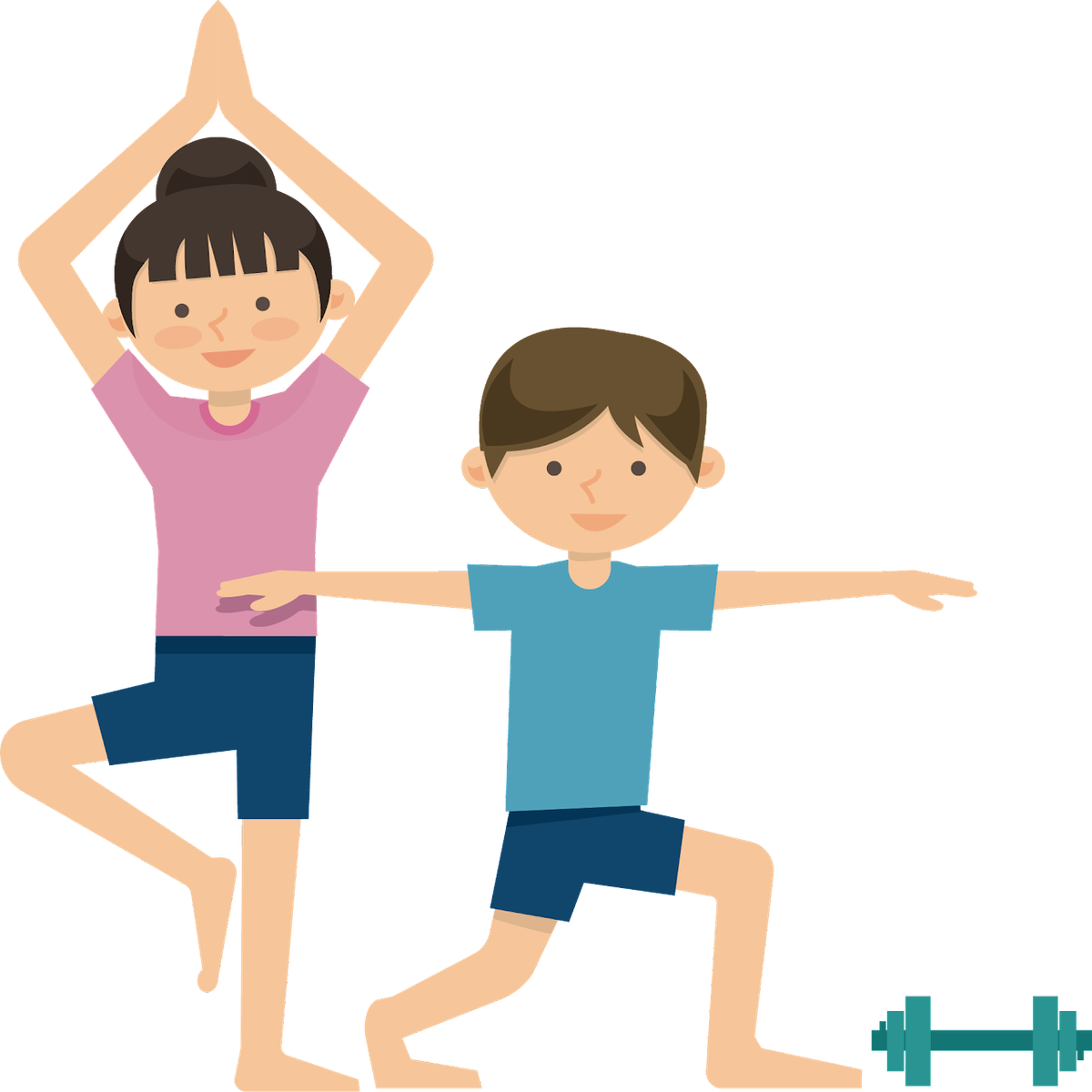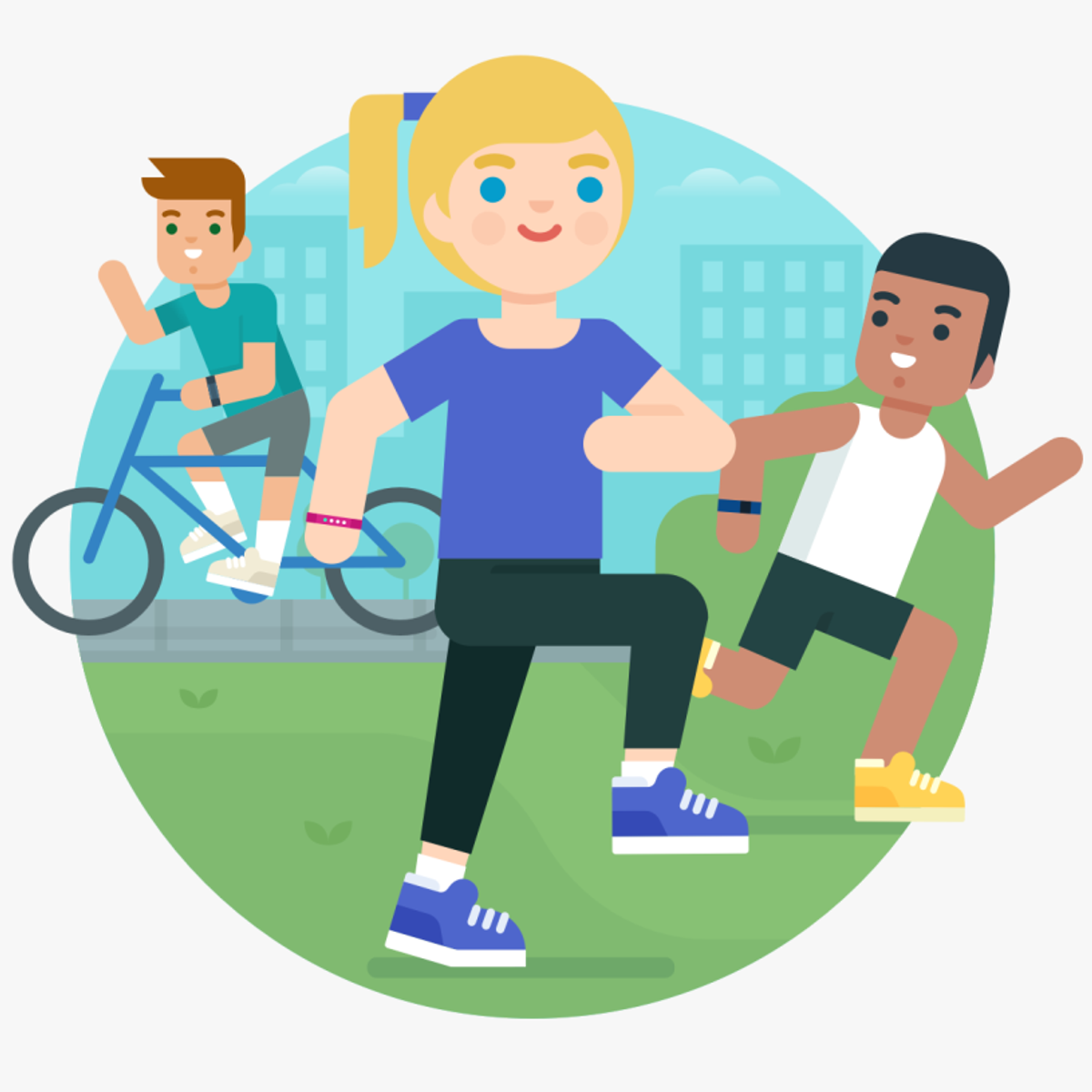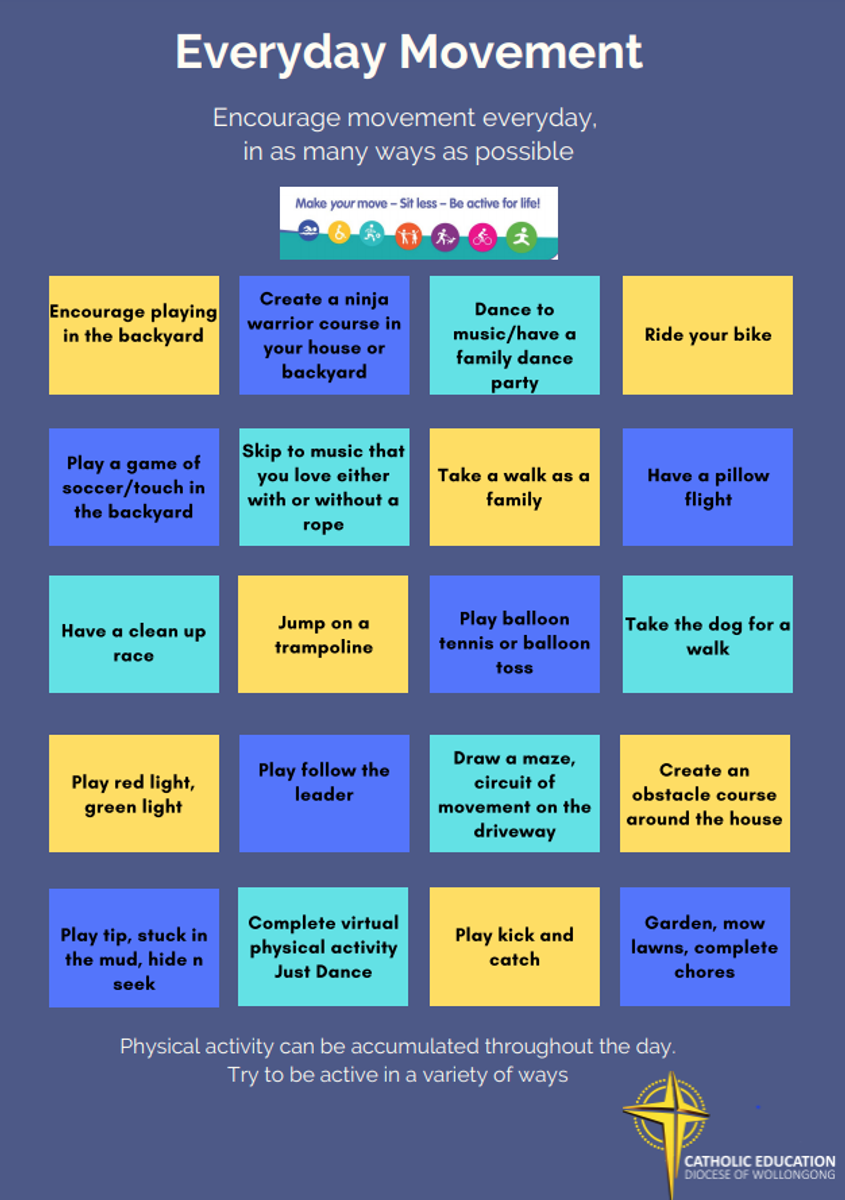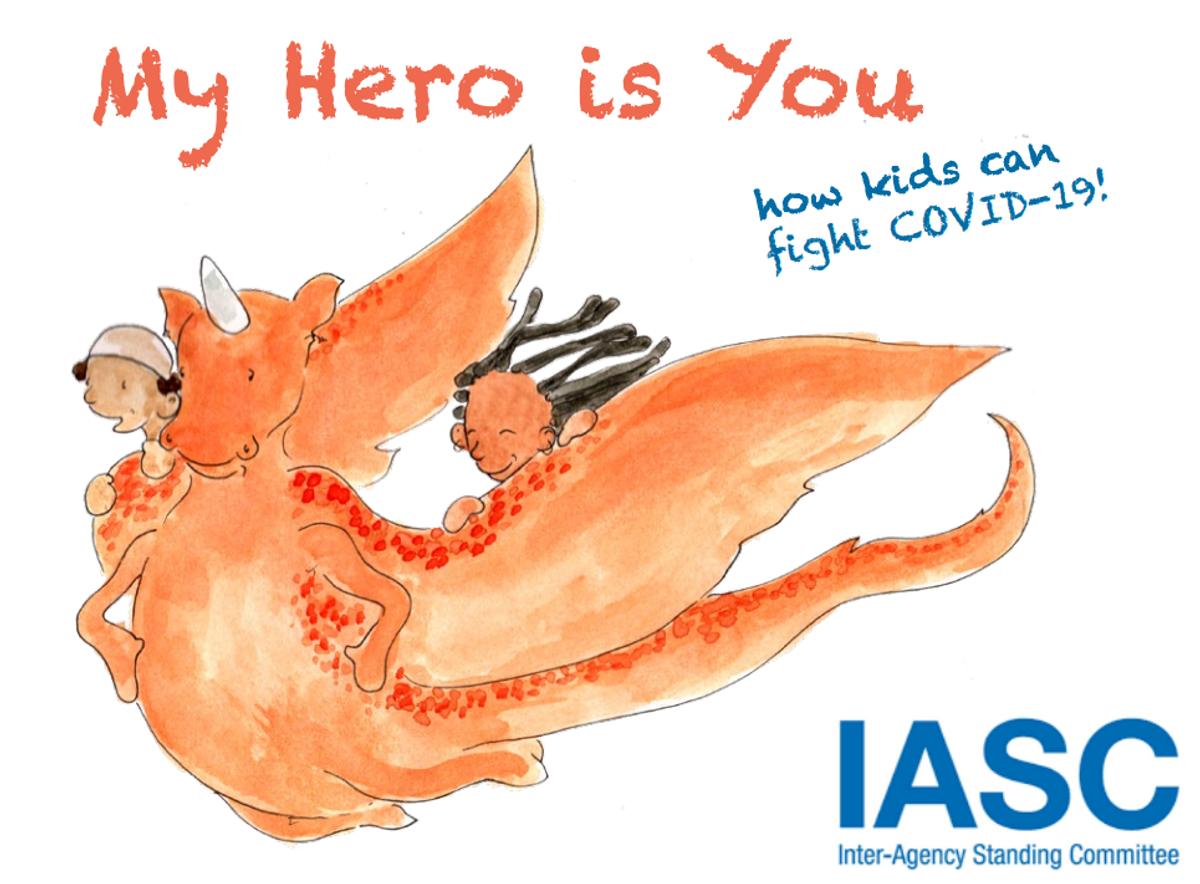Wellbeing: Get moving!

Move it!
Below are some ways you can work with your child/ren to get moving. Consider these three movement types:
SPORT is...
A game, competition, or activity needing physical effort and skill that is played or done according to rules, for enjoyment
- Challenges
- Competition and rules
- Movement skills
- Sport and games
EXERCISE is...
Planned, structured, repetitive, and aims to improve or maintain one or more components of physical fitness.
- Cardiovascular fitness
- Muscular strength
- Muscular endurance
- Flexibility
PHYSICAL ACTIVITY is...
Any bodily movement produced by skeletal muscles that require energy expenditure
- Movement breaks
- Walking/gardening
- Household chores
- Taking the stairs
- Give them extra playtime
Wellbeing Resources from the Week 2 Newsletter
Staying Mentally Healthy
- Work with your child to use the wellbeing resources provided by teachers in the weekly Remote Learning Schedules.
- Schedule daily exercise with your child/ren
- Plan and moderate time on electronic devices
- Set up a sleep routine
- Plan healthy meals and snacks for the week
- Plan some quiet time to relax the mind- perhaps use mediation, or listen to calming music.
- Try some breathing exercises
- Check on your child's wellbeing and if concerned use the Beyond Blue Child Mental Health Check
Explaining COVID-19 to Children
What Can Parents Do To Stay Mentally Healthy?
While many of you will have been putting a great deal of thought into how to help your children cope during this pandemic and remote learning, it’s important that you also put some thought into how to maintain your own wellbeing.
Parents/carers may have a range of different emotional reactions, including feeling overwhelmed, apathetic, worried or irritable.
Although you might be tempted to go into overdrive to minimise the impact on your kids, you are not immune to the stress either. Remember that taking care of your own wellbeing is essential.
Below are four things you can do for your own wellbeing:
- Be gentle with yourself: In the world of parenting, there is a drive to be the best you can be, and to be everything to everyone. Your kids don’t need you to be the perfect parent/carer. They need you to be good enough and to help them feel safe and supported. For this to happen, they need you to be OK. Try to create more realistic and achievable expectations to reduce the pressure.
- Take breaks for self-care: Make sure you take some breaks to do the things that will help you feel less stressed. If you have someone to watch the kids, take a walk by yourself and enjoy the break. Try to find some time each day to take care of yourself, even if it’s just five minutes.
- Stay connected: While it’s important to make time to have fun and connect as a family, make sure you create time for your own social connections. Vent. Laugh. Share ideas about coping and compromising. Be there to support each other.
- Be mindful of how you are thinking about the situation – take it seriously but keep your response in perspective: Stay informed from reliable sources but remember that this will end. It might not feel like it some days, but it won’t be like this forever.
In the video below, Dr Carly Johnco from the Centre for Emotional Health and Department of Psychology at Macquarie University talks to parents and carers about how to look after their own mental health during the COVID-19 pandemic.
How Parents can Keep Calm and Manage Stress
Way to reduce Stress- Beyond Blue
Tips for keeping calm and managing stress- download the PDF below
Ideas for Positively Managing your Children's Behaviour
Getting Children to listen
Positive Approaches to Guiding Children's Behaviour
How Can I Get Help if My Child is Not Coping?
Contact the school
Contact your GP
CatholicCare Wollongong Phone 4254 9395
LIFELINE : 13 11 14
KIDS HELPLINE: 1800 55 1800 kidshelpline.com.au
Download the PDF below
How Do I Know If My Child Is Not Coping?
Parent Guides to Anxiety and Depression





